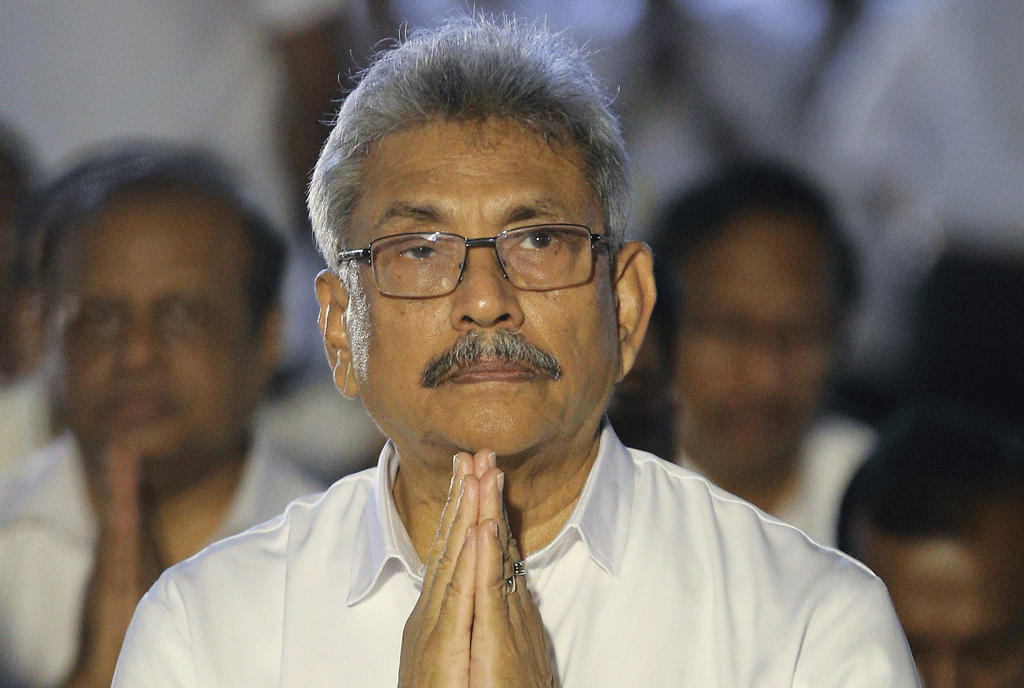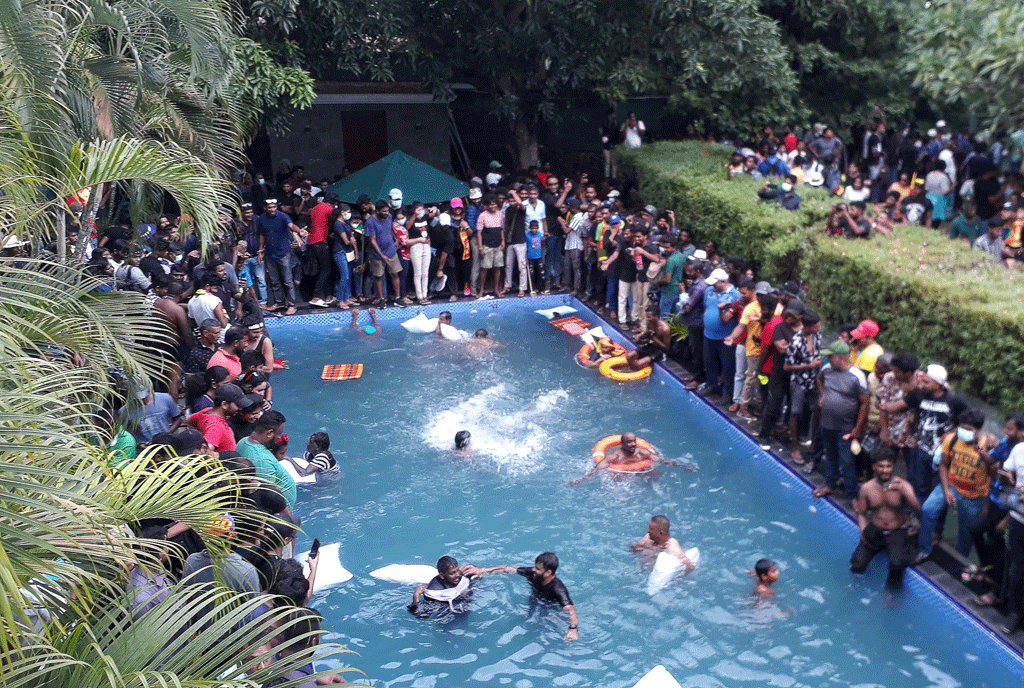Sri Lanka's president to resign after being chased from home

Sri Lanka President Gotabaya Rajapaksa. PHOTO/GETTY IMAGES
What you need to know:
- Sri Lanka's President Gotabaya Rajapaksa announced his resignation on Saturday, hours after a crowd of angry protesters chased him from his residence.
Sri Lankan President Gotabaya Rajapaksa, who fled his official residence on Saturday to escape an angry mob of protesters, has agreed to step down next week, parliamentary speaker Mahinda Abeywardana said.
"To ensure a peaceful transition, the president said he will step down on July 13," Abeywardana said in a televised statement.
Key figures in Sri Lanka's Rajapaksa clan
Anger at Sri Lanka's dire economic crisis has been simmering for months, with many laying the blame for widespread shortages and runaway inflation squarely at the feet of the ruling Rajapaksa family.
On Saturday, that anger boiled over, with hundreds of thousands of protesters massing around the residence of President Gotabaya Rajapaksa, forcing him to flee under military guard just before the crowd overran the home and stormed his nearby office.
While a top defence source told AFP that Rajapaksa "is still the president", other officials said his departure raised questions as to whether he intended to remain in office.
With scenes emerging of protesters frolicking in the presidential pool, and with Rajapaksa's exact whereabouts unknown, here are profiles of some key members of his powerful clan:
'The Terminator'
President Gotabaya Rajapaksa, 72, took office in 2019, wielding executive power over Sri Lanka throughout the Covid pandemic that analysts say helped trigger the current economic crisis.
Unlike his charismatic brother Mahinda, who heads the Rajapaksa clan and was prime minister until May, Gotabaya came to power with little political experience.
Instead, he came from a military background, having been in charge of the army and police throughout Mahinda's presidency from 2005 to 2015.
In 2009, he led a brutal government crackdown that crushed the separatist Tamil rebels after decades of civil war.
The bloody final weeks of the conflict ended with -- according to UN estimates -- the deaths of around 40,000 civilians, who were herded into so-called no-fire zones that were then bombed by the armed forces.
He denies accusations that he was behind death squads that abducted and "disappeared" dozens of opponents in feared white vans.
Dubbed "The Terminator" by his own family, he is feared by foes for his short temper.
The leader
Mahinda Rajapaksa, 76, is the head of the clan. He was president for a decade, and before that he was prime minister in 2004.
Mahinda was once adored by the Sinhala-Buddhist majority for crushing the Tamil rebels in the military offensive that ended the civil war.
He refused an international probe into atrocities allegedly committed during the war. A series of local enquiries have failed to yield either a proper war crimes investigation or prosecutions.
Critics say Mahinda also did little to bridge the divide with Sri Lanka's Tamils after the war. The community is barred from commemorating their war dead and remain largely marginalised.
During Mahinda's presidency, Sri Lanka also moved closer to China, borrowing almost $7 billion for infrastructure projects -- many of which turned into white elephants mired in corruption.
The centrepiece -- and biggest flop -- was the Hambantota deep-sea port that had to be leased to China in 2017 for 99 years after Colombo failed to keep up with debt repayments for its construction.
Mahinda Rajapaksa resigned as prime minister in May and had to be rescued by the military after thousands of protesters stormed his residence in Colombo.
'Mr. Ten Percent'
Then there are other members of the family, including Basil Rajapaksa, 71, nicknamed "Mr. Ten Percent" in a BBC interview in reference to commissions he allegedly took from government contracts.
Subsequent administrations failed to prove any charges that he syphoned off millions of dollars from state coffers. All cases against him were dropped when Gotabaya became president.
Basil was made finance minister when Gotabaya became president but was jettisoned in mid-April as the president tried to rescue his government. He has since resigned from parliament.
Also out of the door was Chamal, 79, another sibling who was in charge of irrigation. His son Sashindra was involved in a disastrous ban on chemical fertiliser imports.
Mahinda's eldest son Namal, 36, who ran the sports ministry and had been touted as a future leader before the crisis, was also dropped.
'Rajapaksa brand'
With only Gotabaya left in power, Namal told AFP in May that the family was merely going through a "bad patch".
Akhil Bery from the Asia Society Policy Institute said at the time that even after Mahinda's resignation "the Rajapaksa brand still has support amongst the Sinhalese population".
"Though much of the blame can be placed on the Rajapaksas now, their successors will inherit the mess, leaving space for the Rajapaksas to remain politically relevant," he told AFP.





